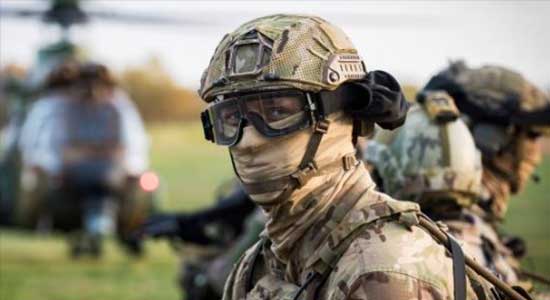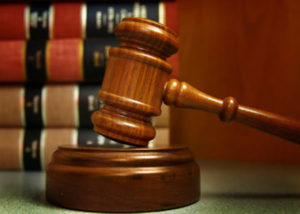
A report by a United Kingdom (UK)-based research organisation, Action on Armed Violence, AOAV, has revealed how Britain’s Special Forces secretly participated in hostage rescue efforts in Nigeria, including an incident in which a Briton and Italian died.
The report, released on Tuesday, May 23, revealed that the British Special Forces secretly operated in Nigeria and 18 other countries in the past 12 years.
Titled ‘Britain’s Special Forces on service in at least 19 countries since 2011’, the report covers the exfiltration activities of the Britain’s Special Forces between 2011 to 2023.
The report questioned the degree of transparency and democratic consent involved in the activities of the British Special Air Service, SAS, and other European countries’ special forces activities across the 19 countries.
It noted that the British SAS had operated secretly in Nigeria, Algeria, Estonia, France, Oman, Iraq, Kenya, Libya, Mali, Cyprus, Pakistan, Somalia, the Philippines, Russia, Syria, Ukraine, Yemen and Sudan.
The UK research think-tank, AOAV, further identified Burkina Faso, Oman, Jordan, Saudi Arabia, Turkey, and Djibouti as countries where the British Special Forces had either trained foreign forces or based their forces before launching into another country.
According to the report, relevant British ministers did not publicly certify the covert operations of the military units, which include hostage rescues as well as exfiltrations.
The operations in Nigeria include a failed attempt by the Special Boat Service, SBS, to rescue a British engineer, Chris McManus and Italian Franco Lamolinara, in northern Nigeria in March 2012.
McManus – from north-west England – and Lamolinara were “murdered by their captors before they could be rescued” according to a BBC report.
The BBC’s Gordon Corera said UK troops “were first in” and shot a kidnapper but it was too late to save the two engineers, who were seized by gunmen in Birnin Kebbi, Kebbi State on 12 May 2011.
Also, according to the report, British special forces in 2014 joined a growing international effort to locate and rescue hundreds of schoolgirls kidnapped by Islamist militants in Nigeria.
“Special Air Service, SAS, liaison officers, based in the capital Abuja, have switched their focus to evaluating Britain’s capacity to help the rescue, which has been dogged by claims of delays and incompetence.
“The SAS liaison officers were in the country before the kidnappings but are understood to have switched their priority to assessing options open to Britain to help,” the report stated.
According to the report, the UK prime minister and defence secretary deployed members of SAS, Special Boat Service and Special Reconnaissance Regiment to conduct high-risk missions where the UK is not at war.
AOAV further revealed that the special forces actively supported rebel groups in Syria against President Bashar Al-Assad.
“European and Jordanian sources in 2013, training of rebels had been going on for a year and was focused on senior Syrian army officers.
“Unconfirmed reports in French and American media suggested that UKSF had been assisting Syrian rebels in Turkey and Lebanon as early as 2011. The former British ambassador Peter Ford would later tell a parliamentary enquiry that “moderate” groups among the armed opposition was “largely a figment of the imagination,” the report added.
Fifty members of UK special forces were listed as being present in Ukraine earlier this year in leaked Pentagon papers, despite their concealed involvement in the conflict.
AOAV stressed that the lengthy list of deployments occurred despite a lack of control.
“Even though special forces can be deployed without the Commons’ consent and are not subject to parliamentary committee investigations, etiquette requires that MPs vote to authorise a war.”
The report also stated that David Cameron granted the SAS “carte blanche” to arrest and murder Middle Eastern Islamic leaders after terrorists massacred 38 people including 30 British citizens at beach hotel in Tunisia in June 2015.
“The extensive deployment of Britain’s Special Forces in numerous countries over the past decade raises serious concerns about transparency and democratic oversight,” said Iain Overton, the executive director of AOAV.
“The lack of parliamentary approval and retrospective reviews for these missions is deeply troubling.”
Also, according to the report, a public investigation into the activities of SAS in Afghanistan between 2010 and 2011 disclosed that 54 summary executions were conducted.
“Guys were taken away from their families and shot dead several times after being accused of producing a weapon.”
Following the start of violence in Sudan in April, special forces helped evacuate two dozen British diplomats and their families to an airfield north of the capital when they were in danger of being attacked.




In a world saturated with countless blogs, this one stands out as a delightful haven of engaging content and thoughtful insights. Offering a fresh perspective on a wide range of topics, the blog’s posts are always well-written and thought-provoking. With a user-friendly layout and consistent updates, this blog is an excellent resource for anyone seeking informative and entertaining reads. Highly recommended! Try to Visit My Web Site : LOKABET88